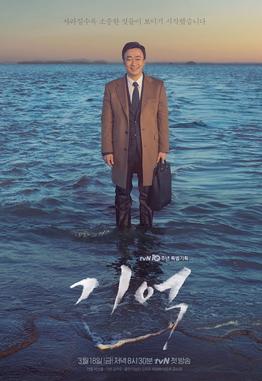Related Research Articles

South Korea competed as Korea at the 2000 Summer Olympics in Sydney, Australia. Athletes from North and South Korea marched together in the opening ceremony under the Korean Unification Flag. 281 competitors, 175 men and 106 women, took part in 144 events in 26 sports.
Seoul Institute of the Arts is a prominent educational institution specializing in the Arts located in Ansan, Gyeonggi Province, South Korea. The school has nurtured many graduates who are actively working in art related fields within Korea as well as internationally. The Namsan campus in the heart of Seoul is used for presentation of arts productions and convergence with industry. The Ansan Campus opened in 2001 and is used for educational training, which aims to tear down barriers between disciplines, genres, and majors. The Institute continues to be a forerunner in globalization of Korean arts and creation of new forms of arts.

The South Korea women's national volleyball team represents South Korea in international volleyball competitions and friendly matches. It was one of the leading squads in the world in the 1970s, 1990s and 2010s, having won the bronze medal at the 1976 Summer Olympics in Montreal, Quebec, Canada, and placing fourth at the 1972 Summer Olympics in Munich, Germany, the 2012 Summer Olympics in London, Great Britain and the 2020 Summer Olympics in Tokyo, Japan.
The Order of Cultural Merit (Korean: 문화훈장) is one of South Korea's orders of merit. It is awarded by the President of South Korea for "outstanding meritorious services in the fields of culture and art in the interest of promoting the national culture and national development."
Nonstop (Korean: 논스톱) is a South Korean sitcom that broadcast its first season in 2000 on MBC. It continued with 5 more seasons. The series was popular for its cast of teen idols, many who debuted through the show gaining vast popularity.

Sharp (Korean: 반올림) is a Korean drama that aired from November 29, 2003, to February 25, 2007, on KBS2.

South Korea participated in the 2006 Asian Games in Doha, Qatar on 1–15 December 2006. South Korea ranked 2nd with 58 gold medals in this edition of the Asiad.

South Korea competed at the 2009 East Asian Games held in Hong Kong from October 29, 2005, to November 6, 2005.

It's Okay, Daddy's Girl is a South Korean television series that aired on SBS TV from November 22, 2010 to January 28, 2011.

Gyebaek is a 2011 South Korean period drama series, starring Lee Seo-jin, Cho Jae-hyun, Song Ji-hyo and Oh Yeon-soo. It aired on MBC from July 25 to November 22, 2011 on Mondays and Tuesdays at 21:55 for 36 episodes.
KPlus is a South Korean model and actors management company established by fashion model-turned-CEO Go Eun-kyung in 2008.

Memory is a South Korean television series starring Lee Sung-min, Kim Ji-soo and Park Jin-hee. It replaced Signal and aired on cable network tvN on Fridays and Saturdays at 20:30 (KST) from March 18, 2016 to May 7, 2016 for 16 episodes.

The Good Wife is a South Korean television series starring Jeon Do-yeon, Yoo Ji-tae and Yoon Kye-sang. It is a Korean drama remake of the American television series of the same title which aired on CBS from 2009 to 2016. It replaced Dear My Friends and aired on the cable network tvN every Fridays and Saturdays at 20:30 (KST) for 16 episodes from July 8 to August 27, 2016.

Bad Thief, Good Thief is a 2017 South Korean television series starring Ji Hyun-woo, Seohyun, Kim Ji-hoon, Lim Ju-eun and others. It replaced Father, I'll Take Care For You and aired on MBC on Saturdays and Sundays at 22:00 (KST) from May 13 to November 5, 2017 for 50 episodes.

South Korea participated in the 2018 Asian Games in Jakarta and Palembang, Indonesia from 18 August to 2 September 2018. It was the 18th appearance of the country at the Asian Games, except the first edition in Delhi. As one of the best competitors at the Games, South Korea's best achievement was in the 2002 Busan, with the acquisition of 96 gold, 80 silver and 84 bronze medals. At the latest edition in 2014 Incheon, the country had collected 79 gold, 71 silver, and 84 bronze medals.
Daemyeong is a 1981 South Korean television series starring Kim Dong-hoon, Kim Heung-ki, Seo Young-jin, Won Mi-kyung, Kim Sung-won and Baek Il-sub. It aired on KBS1 from January 5, 1981 until December 28, 1981 every Mondays for 52 episodes.
References
- ↑ "[Editorial] Korea National Ballet: Embodying hypocrisy". The Hankyoreh . Retrieved 23 June 2017.
- ↑ "Top Ballerina Disciplined Over Naked Photos". The Korea Times . 26 October 2007. Retrieved 23 June 2017.
- 1 2 3 4 5 6 "Milestone" . Retrieved August 12, 2018.
- ↑ "Kang Suejin: KNB PEOPLE-Artistic Staff" . Retrieved August 12, 2018.